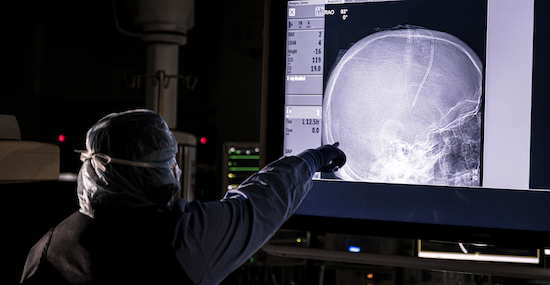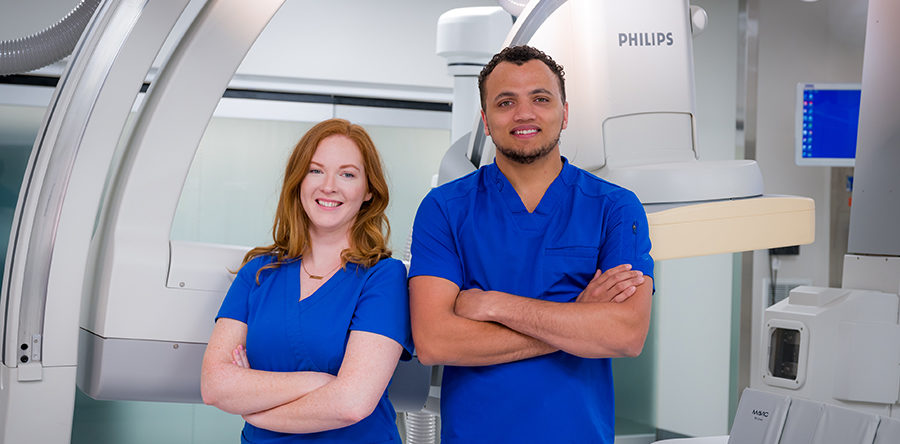10 Signs to Help You Spot Dementia Early
November 7, 2024
Categories: Healthy Living, Neuro, Neurology
Tags: Dementia, Alzheimer’s disease
The rate of dementia is on the rise in the United States and Florida. Florida has the second highest incidence rate of Alzheimer's disease in the nation, only behind California. Alzheimer's disease is the sixth leading cause of death among adults 65 years or older in the United States.
According to the Alzheimer's Association, an estimated 6.9 million Americans aged 65 years or older are living with Alzheimer's dementia in 2024. By 2050, the number is projected to rise to 13.8 million.
As home to the Big Bend region's only Memory Disorder Clinic, Tallahassee Memorial HealthCare (TMH) is here to help you understand the difference between potential dementia symptoms and typical age-related behaviors.
What is Dementia?
Dementia is a set of symptoms that can include memory loss, impaired judgment and difficulty with language, thinking and problem-solving. Alzheimer's disease is the most common form, but other types include vascular dementia, Lewy body dementia, frontotemporal dementia and mixed dementia.
Early Signs of Dementia vs. Typical Aging
It can be challenging to differentiate between changes that are common with aging and symptoms that could be cause for concern. Here are 10 early signs and symptoms of dementia from the Alzheimer's Association:
-
Memory loss that disrupts daily life: Some common early symptoms of dementia are forgetting recently learned information (such as important dates or events), asking the same question repeatedly or relying more on reminder notes, electronic devices or family members for things they used to handle on their own.
- Typical Age-Related Aging: Occasionally forgetting names or appointments but remembering them later.
-
Challenges in planning or solving problems: Someone living with dementia may experience challenges with following a familiar recipe or keeping track of monthly bills.
- Typical Age-Related Aging: Making occasional errors when managing finances or household bills.
-
Difficulty completing familiar tasks: This may include challenges in driving to a familiar location, organizing a grocery list or remembering the rules of a favorite game.
- Typical Age-Related Aging: Occasionally needing help using technology, like microwave settings or recording a TV show.
-
Confusion with time or place: People living with dementia may experience difficulties with keeping track of dates, seasons and the passage of time.
- Typical Age-Related Aging: Getting confused about the day of the week but figuring it out later.
-
Trouble understanding visual images and spatial relationships: Some people with dementia experience vision problems, including judging distance and determining color or contrast. This can often cause issues with driving.
- Typical Age-Related Aging: Vision changes related to cataracts.
-
New problems with words in speaking or writing: People living with dementia often have trouble with communication. They may stop in the middle of a conversation, struggle with vocabulary or repeat themselves.
- Typical Age-Related Aging: Sometimes having trouble finding the right word.
-
Misplacing things and losing the ability to retrace steps: A person living with dementia may put their belongings in unusual places or lose things and be unable to go back over their steps to find them again. This can present as the individual accusing others of theft.
- Typical Age-Related Aging: Misplacing things from time to time and retracing steps to find them.
-
Decreased or poor judgment: Individuals may experience changes in judgment or decision-making, including when managing finances. People living with dementia can be particularly vulnerable to scams.
- Typical Age-Related Aging: Making a bad decision or mistake once in a while, like neglecting to change the oil in the car.
-
Withdrawal from work or social activities: A person living with dementia may withdraw from hobbies and social activities.
- Typical Age-Related Aging: Sometimes feeling uninterested in family or social obligations.
-
Changes in mood and personality: Individuals living with dementia may be more easily upset, especially when outside of their comfort zone.
- Typical Age-Related Aging: Developing specific ways of doing things and becoming irritable when a routine is disrupted.
A common factor in all these symptoms is a change from the person's usual behavior or baseline. For example, if someone has always relied on reminder notes, continuing to do so in their older years is not necessarily indicative of dementia.
Benefits of Early Detection
Spotting dementia symptoms early offers benefits that can significantly impact the quality of life for individuals, families, and the community:
- Medical benefits - Timely access to treatments, improved management of comorbidities and opportunities to participate in clinical trials
- Emotional and social benefits – Decreased anxiety and uncertainty, strengthened family support, preservation of dignity and relationships and increased access to support groups
- Logistical benefits - Effective legal and financial planning, tailored care strategies, resource allocation and advanced healthcare directives
- Cost savings benefits - Delayed nursing home placement, fewer emergency visits and hospitalizations and overall reductions in healthcare costs
Approaching a Loved One with Your Concerns
Approaching a loved one with concerns about memory loss or cognitive decline can be challenging. Here are some gentle, supportive strategies:
- Choose the right time and place: Have the conversation in a quiet, private setting where you can speak without distractions. Find a time when your loved one is calm and in good spirits.
- Express empathy and support: Let them know you're coming from a place of love and concern. Use "I" statements, such as, "I've noticed you seem to be forgetting things more often, and I'm concerned."
- Use specific examples: Gently reference specific instances you've observed, like forgetting names of familiar places or having difficulty following conversations. Avoid vague statements that could feel accusatory.
- Actively listen: Give them space to share their perspective and feelings. They may already have noticed changes themselves and could feel relieved to discuss them with someone they trust.
- Offer help, not pressure: Suggest a visit to a healthcare professional as a precaution and offer to accompany them. Remind them that getting checked out early is often helpful, no matter the outcome.
- Reassure them of support: Let them know you'll be there with them through any next steps. Emphasize that this is something you'll face together, ensuring they don't feel alone in the process.
Having this conversation can be delicate, but it can lead to early detection and support, making a significant difference in their quality of life.
Where to Get Help
Tallahassee Memorial HealthCare (TMH) is home to one of only 17 designated Memory Disorder Clinics in Florida, funded through a grant from the Department of Elder Affairs. As part of the state's Alzheimer's Disease Initiative, we provide the highest level of care for patients and families across the Big Bend who are affected by memory disorders and Alzheimer's disease and related dementias.
Our team of neurologists, neuropsychologists and social workers provide comprehensive diagnostic evaluations, care planning, resource referrals, emotional support and education for people living with dementia and their caregivers.
Our social work team is available for all community members – not just patients of our clinic. If you have been diagnosed with a memory disorder or you're caring for a loved one who has, we can help. Our team can assist patients and families with disease and care-related questions, as well as guide difficult decisions by providing resources, information, and support. Reach our social workers at 850-431-5001, option 7.
Learn more about the Memory Disorder Clinic at TMH by visiting TMH.ORG/Memory.



